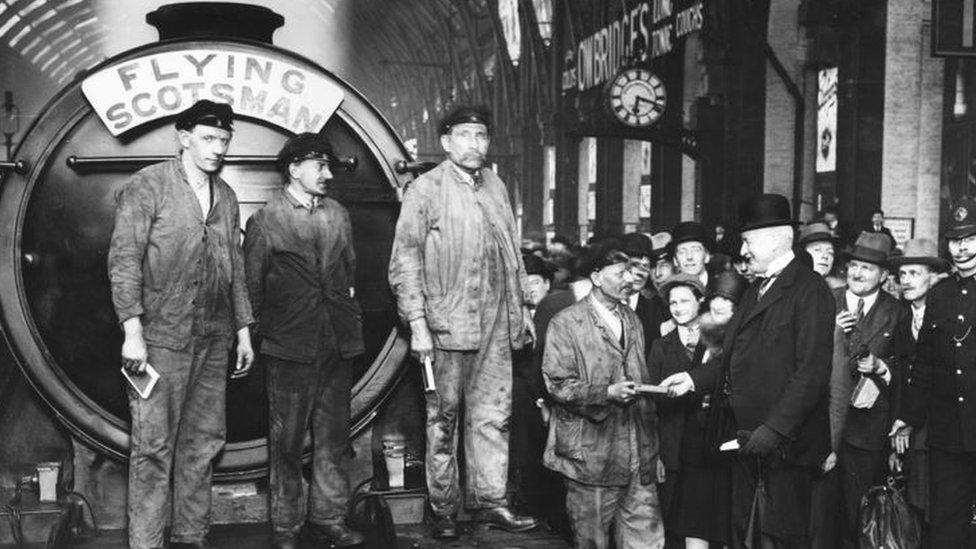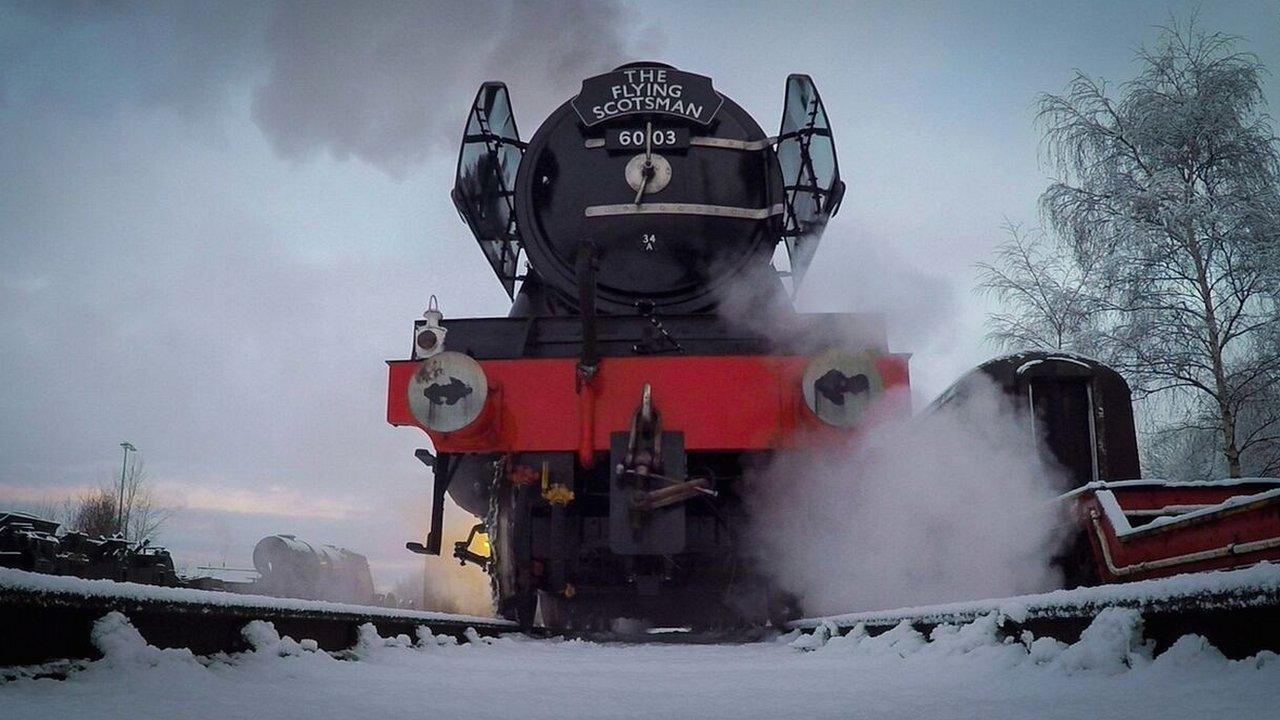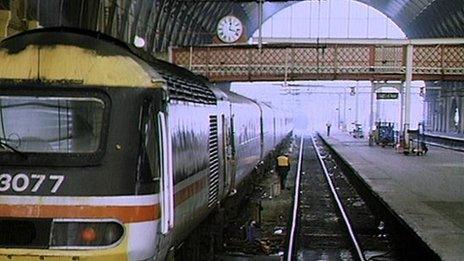Flying Scotsman at Mid-Hants Railway's Watercress Line relaunch
- Published
The Flying Scotsman arrived at Alton station for the line's official reopening
The reopening of a heritage steam railway has been marked by a visit from the Flying Scotsman.
Mid-Hants Railway's Watercress Line was shut at Alton, Hampshire, for almost a year while Butts Bridge was replaced.
The record-breaking Flying Scotsman locomotive travelled along the full 10-mile (16km) line as part of an event to celebrate its official reopening.
Trustee Liam Kenchenten said the engine's visit was a "really exciting" event for the volunteer-run line.
While the bridge was being replaced, trains could only run to three of the line's four stops and could not be run in to Alton Station.

Local schoolchildren gathered in Alton to see the Flying Scotsman
The works which finished in December were originally expected to take nine months, external but overran due to problems with its Victorian foundations.
Mr Kenchenten said the Flying Scotsman's first visit to the line was a chance for visitors to see an "icon of British engineering".
"It's the most famous locomotive in the UK - it's really exciting to have it here and its a great flag bearer for heritage railway lines in general."

Work to replace Butts Bridge in Alton overran
The line was known as the Watercress Line as it was used to transport watercress from Hampshire farms to sell in London in Victorian times.
It closed in 1973 but was fully reinstated under the Mid-Hants Railway in 1985 and attracts more than 125,000 visitors a year.


Flying Scotsman facts
It was built in 1923 at a cost of £7,944
In 1934 it became the first locomotive to make an official 100 mph (160 km/h) run
It was retired from service by British Rail in 1963
It underwent a £4.2m refurbishment between 2006 and 2016 and returned to the mainline
The locomotive's number is 60103
Source: Flying Scotsman, external
- Published26 July 2010
- Published5 March 2016

- Published2 November 2011
